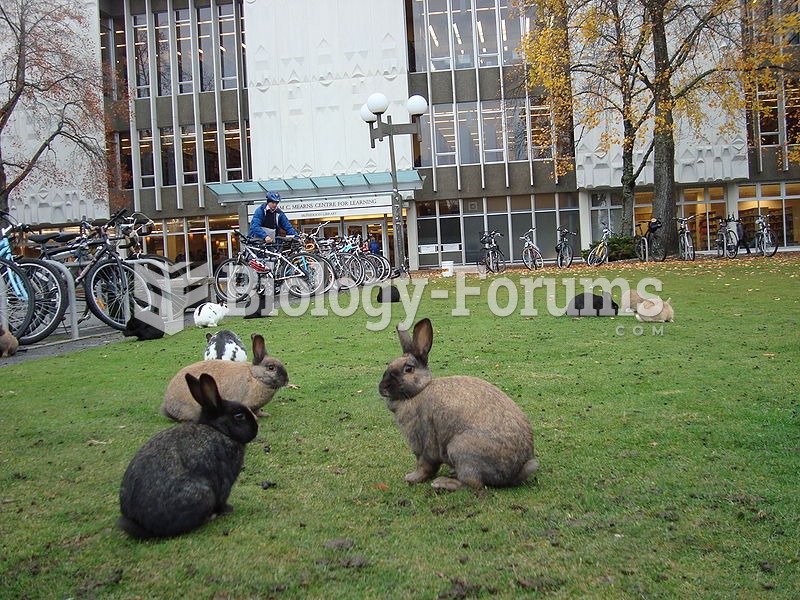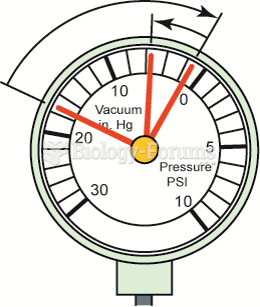|
|
|
Warfarin was developed as a consequence of the study of a strange bleeding disorder that suddenly occurred in cattle on the northern prairies of the United States in the early 1900s.
More than 150,000 Americans killed by cardiovascular disease are younger than the age of 65 years.
Once thought to have neurofibromatosis, Joseph Merrick (also known as "the elephant man") is now, in retrospect, thought by clinical experts to have had Proteus syndrome. This endocrine disease causes continued and abnormal growth of the bones, muscles, skin, and so on and can become completely debilitating with severe deformities occurring anywhere on the body.
Famous people who died from poisoning or drug overdose include, Adolf Hitler, Socrates, Juan Ponce de Leon, Marilyn Monroe, Judy Garland, and John Belushi.
IgA antibodies protect body surfaces exposed to outside foreign substances. IgG antibodies are found in all body fluids. IgM antibodies are the first type of antibody made in response to an infection. IgE antibody levels are often high in people with allergies. IgD antibodies are found in tissues lining the abdomen and chest.
 When introduced into a new area, rabbits can overpopulate rapidly, becoming a nuisance, as on this u
When introduced into a new area, rabbits can overpopulate rapidly, becoming a nuisance, as on this u
 The fact that a mother works outside the home has no negative effect on the well-being of her child ...
The fact that a mother works outside the home has no negative effect on the well-being of her child ...
 A needle that drops to near zero when the engine is accelerated rapidly and then rises slightly to ...
A needle that drops to near zero when the engine is accelerated rapidly and then rises slightly to ...




